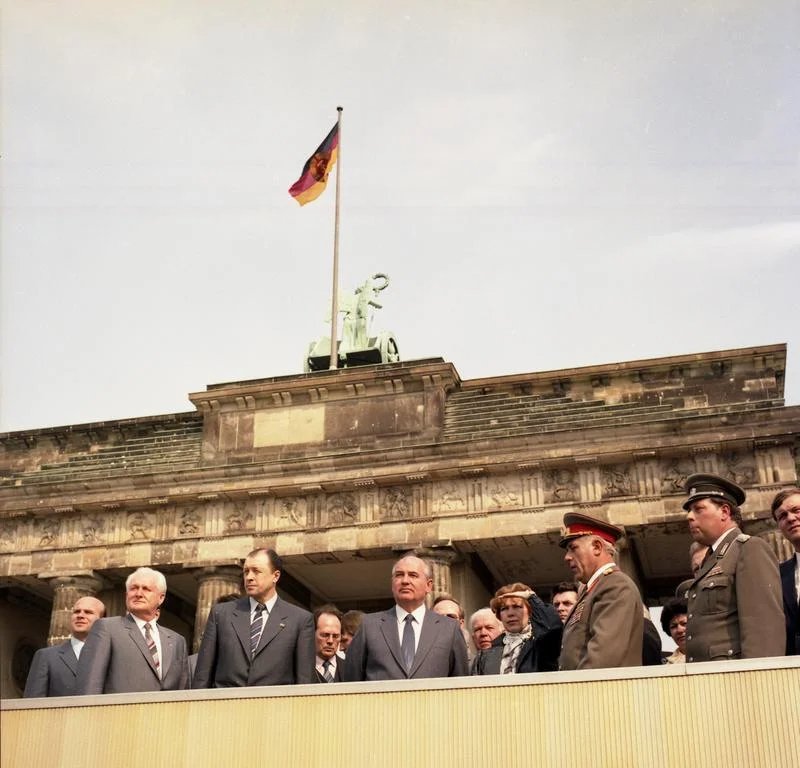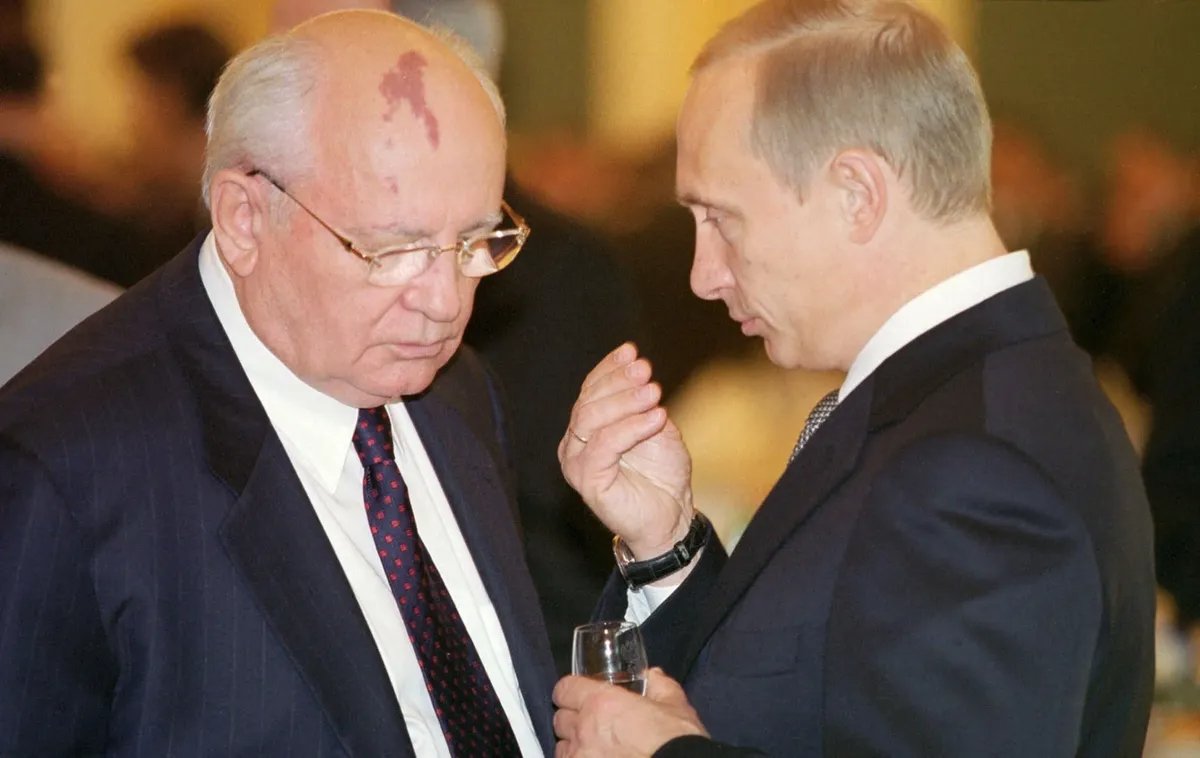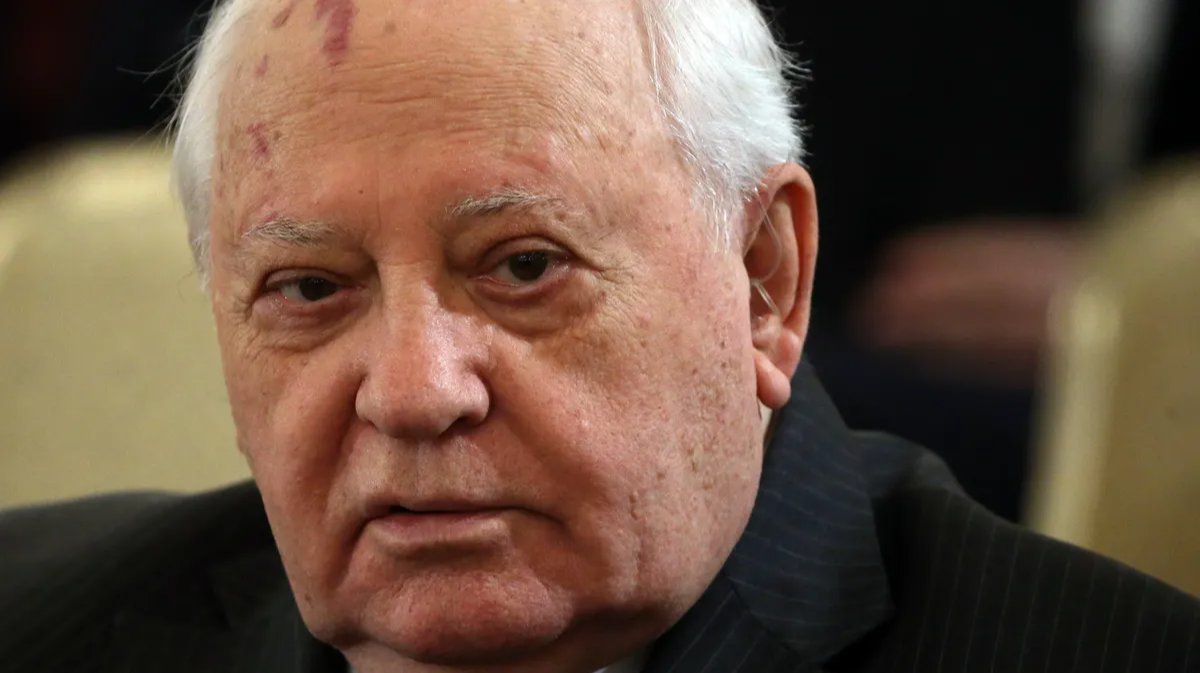Mikhail Gorbachev led the country for six years. A mere moment by the standards of dictators dreaming of eternal power. He left with the country that he headed to avoid drowning this country in blood. Some still cannot forgive him for that, for there were no leaders like him in Russia both before and after his rule. Gorbachev is an outsider in a society that considers Stalin an example of a great ruler, but this society is sick with fear.
What was seen as Gorbachev’s weakness thirty years ago now looks like a test of power that he managed to withstand. He was able to remain human after giving up the throne, to separate himself from his position, to retain his sanity.
In the six years of his rule, the USSR normalised its relations with the world and ended the Cold War. The Iron Curtain fell, along with the Berlin Wall. The shameful war in Afghanistan, a prologue to Russia’s future shameful wars, which led to thousands of traumatised veterans scattered across the country, came to a close.

Mikhail Gorbachev in front of the Brandenburg Gate, 1986. Photo: Wikipedia
Freedom of press returned. Soviet citizens were able to openly discuss things that previously, they could only mention in hushed voices in the kitchen. Today’s Russian society has learnt to call the war “a special military operation” in just a few months. So, we can only imagine now what effect glasnost (“openness”), a policy of transparency in government activities and freedom of information, had on people who had been bombarded with hypocrisy and lies for dozens of years. Gorbachev believed that there is a future after him and true socialism, that honest politics should not be threatened by open discussions, that there are no banned topics. In this sense, he was a European who spoke the same language as the rest of the world. It was easy for him to break down walls.
Gorbachev assembled the first real Russian parliament: during the first sessions of the updated Supreme Soviet, people who kept quiet for too long burst into passionate political speeches. They were learning to talk about their interests and problems, with millions of voters watching the politicians on TV. Gorbachev’s Supreme Soviet remains a miracle amid the wilderness of our political history, slack in the middle of lifeless ovations at the congresses of the Communist Party and the Zombieland that is the current State Duma, filled with hypocrites who have no qualms about sending people to war.
Gorbachev’s Russia could argue and do politics
— the man himself had to hear the toughest rhetoric directed against him as the chairman of the Supreme Soviet. But he listened. In this sense, he was stronger than those surrounding themselves with yes-men.
A multi-party system was introduced. If the Communist Party has the right ideas, why should it be afraid of competition? This is what Gorbachev was thinking when demolishing the main spiritual pillar: the boss is always right. During his rule, you could doubt the actions of your higher-ups without being proclaimed a foreign agent. Former dissidents, like Andrei Sakharov, were given an opportunity to speak their mind once again. The notion of “enemies of the people” no longer existed: if everyone speaks what they think, you cannot determine who is an enemy — everyone is simply different.
Peaceful demonstrations that attracted scores of people were held in Moscow, out in the open. On 4 March 1990, 200,000 people gathered in front of the Kremlin, demanding to renounce “the leading role of the Communist Party” stipulated in the Soviet Constitution. They were not persecuted, no one dragged them inside police vans, no one declared them extremists, the KGB did not open a case against them, no one came to search their homes at six in the morning, no one fired them. Our current leaders do not have the guts to live in Gorbachev’s Russia.
Gorbachev legalised private property as the basis for daily human life in 1990. Everything that we still automatically call the norm was introduced in Russia during Gorbachev’s rule.
The Russian catastrophe of 2022 has become possible after thirty years of demolishing Gorbachev’s legacy.

Vladimir Putin and Mikhail Gorbachev. Photo: EPA PHOTO ITAR-TASS POOL / VLADIMIR RODIONOV
Even before Putin, Russia had already had “unlosable” elections. Yeltsin could only step down after choosing a successor, because you can only hand over power to that guy over there that you know, right? The government has been chipping away at the freedom of press for the past twenty years, and now, Russia’s news programs resemble an evil postmodernist parody of the Soviet evening news with additional special effects from US action movies used to illustrate how exactly we are going to blow up America.
Propagandists and thieves are building new walls, hoping to isolate the country from the rest of the world and in this way, to maintain control over it. There is no property, because the entire country belongs to the “right people”, and the rest are paying their dues. Freedom of assembly is considered an infringement on state security, political discussions are a crime. You are not allowed to disapprove of the president’s decisions, even if they are insane. The boss is always right, and once again, he is with us at every turn.
Gorbachev’s legacy took the hardest hit when it comes to glasnost, which many mocked at the time. Gorbachev hated the Stalinist fear, a world where the minds and wills of the people were bound with terror. He freed the country of Stalinism — seemingly, for good. But it came back, along with the old habit of turning a blind eye to the government’s crimes. Pretending that life goes on as usual while your neighbour is being whisked off to jail and Russian missiles are demolishing our neighbouring country has become the norm once again.
Our generations were lucky: we were given a chance to live in a free country that we inherited from Gorbachev. We did not have to wear a uniform or march in a formation. We were allowed to think for ourselves. Many of us refuse to part with this privilege. It will not be beaten out of us with police batons. We will not be deprived of it, no matter what the new Russian laws say. In this sense, we are Gorbachev’s successors, and we owe him that much.
In 2019, when Russia was already being pumped full of militarist hysteria, Novaya Gazeta published my article, in which I countered the “We can do it again” propaganda slogan with just two words: “Never again”. I have a photograph of Mikhail Gorbachev reading this article.
Sadly, the militarists were in fact able to do it again. Will Russia exist after them? It depends on how well we’ve learnt Gorbachev’s lessons.
Join us in rebuilding Novaya Gazeta Europe
The Russian government has banned independent media. We were forced to leave our country in order to keep doing our job, telling our readers about what is going on Russia, Ukraine and Europe.
We will continue fighting against warfare and dictatorship. We believe that freedom of speech is the most efficient antidote against tyranny. Support us financially to help us fight for peace and freedom.
By clicking the Support button, you agree to the processing of your personal data.
To cancel a regular donation, please write to [email protected]

